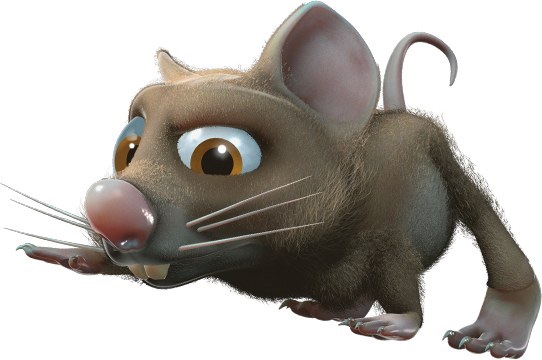Raccoon Facts
Recognized mostly by their mask-like markings on their face, raccoons are found all across North America. They can be rather large, ranging from 26 to 38 inches long.
Raccoons will feed on anything they can get their paws on. Fruit, berries, nuts, insects, fish, garbage, pet food, you name it. In the wild, most live for only five years, but some have been know to live much longer. Raccoons are primarily nocturnal, but it’s not uncommon in spring and summer months to see raccoons looking for food during the day for their young. A raccoon foraging during the day does not necessarily indicate that the raccoon is rabid.
Raccoon Damage
Farmers have the most to lose from the presence of raccoons. They will damage orchards, vineyards, melon patches, cornfields, peanut fields, and even chicken yards. When they are denning, they may create fire hazards if they are in vents. They will also chew on wires, short-circuiting electrical outlets. It is possible for them to also purposefully damage buildings to get inside to nest. Usually, such destructive activity happens on rooftops.
Their droppings may also distribute diseases and parasites. Raccoons commonly carry rabies, a disease that can severely damage the central nervous system. Rabies inflames the human brain, causes fever, violent movements, and confusion. This can be fatal if left untreated. If you are bitten by a raccoon, it is important to seek immediate medical attention to ensure your health and safety.
Raccoon Infestation
There are a few reasons raccoons can be a nuisance including the noises they make. You may hear sounds of whistling, hissing or growling as they feed. Raccoons are also known to scream when attacked. Young raccoons make a lot of noise and can be mistaken for birds.
Their droppings can be found at the base of trees, or along woodpiles and rooftops. Raccoons can cause a lot of damage in search of food as well, leaving black smudges on walls, gutters, or holes in insulation and siding. Orders of urine and feces may also be present. Their feeding habits may leave your vegetables and gardens damaged, or your garbage torn apart.
Types of Raccoons
Raccoon Identification
Raccoons are most commonly identified by the black mask of fur across their eyes and their striped tail. They have light brown to reddish colored fur. Though some seem to think they are related to weasels, they have a closer relation to pandas.
Raccoons in the Yard & Garden
These masked bandits are usually found in hardwood forests, near streams, swamps, or ponds. Raccoons can easily adapt to changing surroundings, denning in trees and logs, under brush piles, in haystacks, attics, crawlspaces, barns, chimneys, and even sewers. If there are empty, hollow areas around your home, these may be probable lodgings for these dumpster divers.
Frequently Asked Questions
How do I keep raccoons away?
Removing sources of food is one of the best ways to stop them from coming around. Never feed the raccoons, and always keep trash in a protected area, if possible. Putting the garbage out in the morning instead of the evening won’t provide them with food when they forage after dark. Placing tight-fitting lids on these cans will also restrict access.
To reduce the spread of disease, cover children’s sandboxes and make sure they wash their hands after being outdoors. Sanitizing outdoor toys is also a good idea. If you’re looking to protect your crops, create barriers around fields and install visual or auditory devices that will scare them away.
If you’re sure raccoons are not inside a structure, seal any potential entry points with hardware cloth, wire mesh, or sheet metal. Cover chimney flues and trim overhanging tree branches to prevent access to rooftops.
The safest way to take care of a raccoon problem is to consult a licensed pest control expert who can remove the critters and protect the property.
What are the benefits of professional raccoon pest control?
Expert pest specialists have the educational background, equipment, and skill to control and remove wildlife nuisances from a property in a safe, efficient way.
If you’re struggling with raccoons on your property, contact us. Our technicians can remove the critters and help you regain control of your property and sanity.


